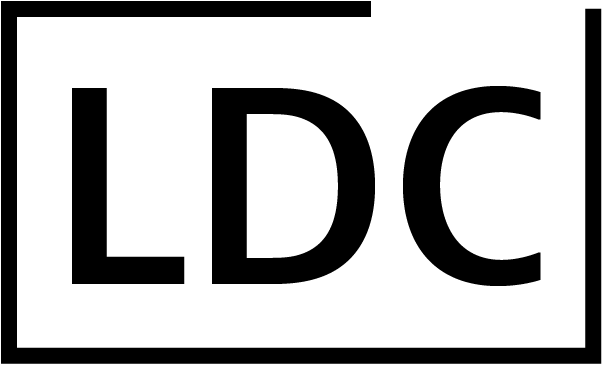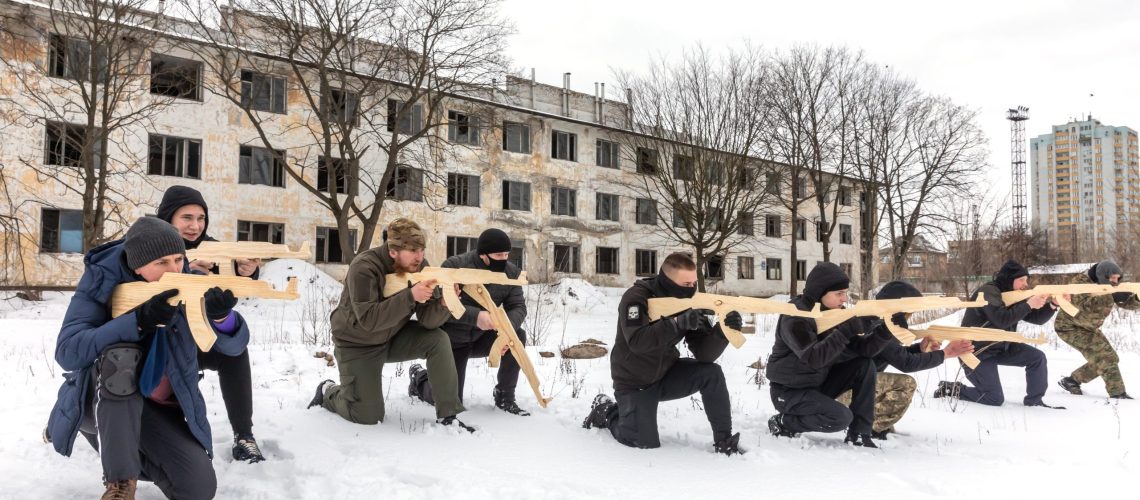Societal resilience and preparedness are an overlooked form of deterrence. Autocratic opponents like Russia and China see democracies’ weak point as our need to respond to shifting popular demands.
However, our democratic natures can be a source of strength rather than weakness if properly managed. Democracy thrives on its ability to grant citizens the freedom and agency to organise themselves, unlike autocracies where the lack of social trust and bonds makes this impossible.
Democracies looking to harness their citizenries’ agency and energy can draw numerous positive and cautionary lessons from Ukraine’s response to Russia’s full-scale invasion.
Ukraine’s Civilian Powerhouse
Reflecting on the horrors of 24th February, 2022, provides a strange kind of hope. On that day, many feared Ukraine might soon cease to exist, but President Zelensky chose to stay and fight; the civilians and veterans who would later become the Kraken special division banded together to defend Ukraine’s strategically essential second city, Kharkiv; ordinary citizens suddenly under occupation risked their lives to expose Russian positions. These individual decisions became acts of collective survival.
When Russia invaded, Ukraine was alone. But around the world, other individuals also made choices: veterans like those in the Ukraine Freedom Company sourced much-needed arms, volunteers at Friends of Medyka helped guide and protect refugees, medics brought supplies and expertise straight to Ukraine. These efforts have adapted and continued. From civilians piecing together drones in their garages to those delivering tactical medical supplies to the front lines, the range of contributions is vast and impactful. For example, the Ukrainian volunteer Serhii Sternenko has procured 50,000 from public donations and supplied them directly to brigades on the front line.
Such efforts extend to more sophisticated technology as well; organisations have been able to supply encrypted radios, which are crucial for secure communication during military operations. Supplies from volunteers provide almost every modern military need such as FPV drones, UAVs, encrypted radios, tablets, vehicles, tactical medicine, optics, night vision, body armour, etc.
Mobilising Support
The volunteer movement externally and internally is incredibly decentralised, which allows for rapid and flexible responses to the evolving needs of the military. This network includes small groups of friends and family, larger NGOs within Ukraine, and even businesses that have shifted their focus to support the defence efforts.
Additionally, significant contributions come from Ukrainian diaspora communities and international groups. The scale of volunteer involvement and the material support they provide are nothing short of staggering. For instance, the Prytula Foundation has contributed US$160m of kits and supplies to the Ukrainian military since Russia’s full-scale invasion. Another organisation, Come Back Alive, has contributed US$341m of equipment and supplies since 2014.
This level of civilian participation not only boosts the military’s capabilities but also demonstrates a remarkable example of unity and resilience, showcasing the powerful role that civilians can play in national defence. By stepping in where formal military support might lag, these volunteers ensure that the Ukrainian forces are better equipped, better supported, and more agile in their responses. This civilian-driven supply chain not only strengthens Ukraine’s defence directly but also serves as a model of how democratic societies can mobilise quickly and effectively in times of crisis, turning the spirit of volunteerism into a robust pillar of national security.
Unconventional Statecraft
But to realise the potential of these movements, states need to understand how they function and how to empower them.
The Unconventional Statecraft Alliance, comprising self-directed and highly motivated groups providing support to both civilian and military end users in Ukraine, provides a template. This Alliance unites groups that have adaptable, demand driven, cost effective supply chains that deliver critical aid, which avoid the bureaucracy of top-down command structures and possible issues of corruption. As the political winds shift in Western capitals, informal security assistance offers a way to bridge the gap in the ‘boom-bust’ cycle that has typified Western military aid in past conflicts. Whilst the participation of global civil society has provided a distinct advantage to Ukraine in its war against Russia, these groups are disparate and often operating independently. The Unconventional Statecraft Alliance is a non-hierarchical way of cohering such efforts outside Ukraine.
At a time when trust in large international charities, NGOs, and institutions is waning, many citizens of democratic countries feel adrift, unsure of their own agency, or how to meaningfully make an impact. A cooperative and collaborative environment, such as that proposed by the Unconventional Statecraft Alliance, provides a meaningful and attractive alternative to the often hierarchical nature of institutionalised aid. It also allows for a rapid and adaptive response to this sense of powerlessness, turning the diversity of democratic participation into a strategic asset against more rigid autocratic systems.
One of the founding members of the Alliance is the Free Ukraine Fund, a consortium of domestic weapons producers that seeks to raise funding to produce military and dual-use technology, spanning FPV drones, ammunition, electronic warfare systems, and software used across Ukraine’s defence sector. The Free Ukraine fund boosts Ukraine’s defence capacities, which currently are underutilised and only able to fund one third of what they have the capacity to produce. The Fund was established to target some of the flaws inherent to any bureaucracy, ensuring that military units have access to the weapons they need and cutting out middle-men that slow down the process of producing weapons and getting them into the hands of soldiers.
As such, Unconventional Statecraft is not just a celebration of the potentials of democracy but also a response to its current failings. Ukraine’s response has many positive aspects which inspire optimism, however, it also offers cautionary tales to democratic states facing an increasingly dangerous world.
At the outset of the full-scale war, Ukraine chose not to prepare its men for mobilisation , missing the opportunity to start a reserve training program that could have involved all men sacrificing one day a week to learn essential military skills like shooting, loading a machine gun, and basic warfare tactics. This lack of preparation wasted valuable time and significantly impacted morale, leaving many men feeling unprepared and reluctant to mobilise. The repercussions of this decision are evident today and could have been mitigated.
Preparation is crucial; democracies cannot and should not throw their citizens into ‘human wave’ battalions like Russia does; instead, they can and should treasure the lives of their men by providing proper training and equipping society in advance. This not only prepares civilians for potential conflict but also fosters a sense of engagement, ownership, and responsibility towards the state and towards those democratic values that often seem, in Western capitals, to be abstract philosophies. Abstraction is a luxury, one that Ukrainians cannot afford. In Ukraine ‘freedom’ is the freedom to walk through your home city without harassment at checkpoints, human rights are the right not to be taken off the street and tortured in a basement, democracy and rule of law mean knowing that you will not be evicted from your family home so a collaborator can move in. Democratic values only feel abstract until they are taken away.
Societal Preparedness and the Deterrence Effect
The fact that North Korea and Iran have proven more reliable allies to Russia than the USA and European nations to Ukraine is a devastating indictment of the vulnerabilities faced by democracies during wartime. Yet, democracies cannot defeat autocracies by aping their disregard for their own people. Instead, creative thinking is required to turn certain perceived weaknesses into formidable strengths. The ability of democracies to mobilise, innovate, and adapt through civic participation and the forms of decentralised Unconventional Statecraft discussed in this article can serve as a proactive form of deterrence, ensuring that democracies are not merely surviving but actively renewing citizen engagement while also meeting threats through collective strength and shared commitment. As such, preparedness and resilience in democracies should be viewed not just as a defensive measure but as a strategic approach that actively shapes global peace and security dynamics.
The societal resilience exhibited by Ukraine’s citizens and their global allies is inherently deterrent insofar as it demonstrates the robustness and sustainability of democratic support mechanisms: Russian expectations since 24th February have been consistently thwarted. Civilians stayed and fought, Russian propaganda did not destroy Ukrainian morale, Western publics did not submerge into apathy but organised to help Ukrainians. In the occupied territories of Ukraine violent resistance continues to this day even in the face of brutal repressions and terror. In part, this resistance was made possible by the creation of horizontal ties and informal security assistance coming in from around the globe. The scale of volunteer efforts and the diversity of contributions—from tactical medicine to advanced UAVs—signal to dictatorships that democracies can maintain prolonged resistance and adapt to the evolving dynamics of warfare. The participatory nature of these efforts enhances the legitimacy and morale of the defence efforts, and democracy itself. Harnessing and empowering these efforts is crucial for survival in sustained conflicts of the type Ukraine and all her supporters -countries and civilians – are facing.
Jade McGlynn is a Leverhulme EC Researcher at the War Studies Department at King’s College London.

